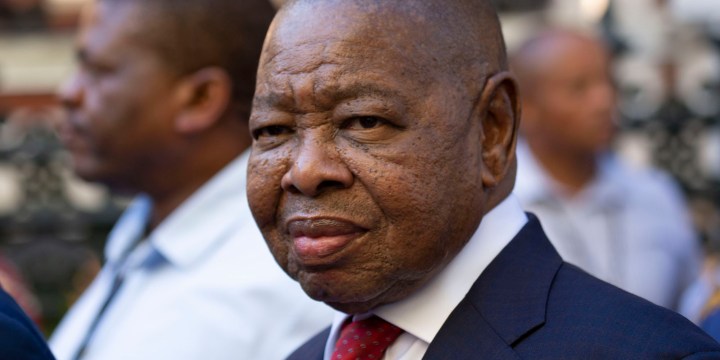NEWSFLASH
Blade Nzimande applauds ‘efficient’ NSFAS

Minister of Higher Education, Science and Technology Blade Nzimande conducted a walkabout at the NSFAS offices in Wynberg, Cape Town on Tuesday 11 February. Nzimande said he was impressed with how NSFAS was handling applications for 2020.
At the start of every academic year, students protest over the same things: student accommodation, historical debt and NSFAS funding.
It was no different in 2020. Most universities began classes around the country this week, with the University of KwaZulu-Natal (UKZN) and the University of the Western Cape (UWC) already being brought to a standstill over issues with student debt and accommodation. Reasons for the protests in UKZN included allegations that NSFAS-qualifying students were prohibited from registering because of their historical debt, despite the Department of Higher Education, Science and Technology saying that they could.
Blade Nzimande, Minister of Higher Education, Science and Technology, focussed on the positive and expressed his satisfaction with how efficiently NSFAS was operating.
“One of the biggest achievements for NSFAS is that for the first time ever all applications that were received between September [2019] and November [2019] have been dealt with and the applicants have been informed,” said Nzimande.
Previously, students would apply to an institution for higher learning. Once they received an acceptance letter, they’d go to the institution and try to register, often without knowing the outcome of their NSFAS application, said Nzimande.
In a press statement, NSFAS wrote that in 2019 it had received a “record number” of about 540,000 of first-time applications (prior year 430,000) by the closing date [November 2019]”.
According to the NSFAS statement, by January 2020 about 480,000 applications were “complete” and “valid”, about 350,000 were declared eligible for funding, 36,000 were withdrawn and 28,000 did not meet the minimum funding criteria.
NSFAS had about 4,000 appeals and had already dealt with half, with the intention of dealing with the rest in the next few days, said Nzimande.
According to NSFAS’s 2018/19 annual report, the total student funding for universities has increased by 38% from R12-billion in the 2017/2018 financial year to R17-billion in the 2018/19 financial year.
NSFAS administrator Randall Carolissen said that one of the biggest challenges was “the phenomenon of walk-ins”.
“We had a record number of applications last year, so we thought that would reduce the number of walk-ins,” said Carolissen.
Latest statistics show that TVET colleges had 130,000 walk-in applications. As NSFAS allowances have already been distributed, they are working hard to process these walk-in applications so that those who qualified would get their allowances soon. NSFAS had already processed half the walk-in applications and planned to complete these in a few weeks, said Carolissen.
Nzimande said that “hopefully not long from now” he would announce a ministerial task team to look into the functionality of NSFAS. This, Nzimande said, is because when the “current system of NSFAS was announced… a lot of policy issues that should have been clarified weren’t”.
In December 2017 former president Jacob Zuma announced that NSFAS would change its definition of working-class students. Initially, those who qualified were students who had an annual combined household income of R120,000. This was changed and the criteria now included those who had an annual household income of R350,000.
Students who were in their final year of study would have their NSFAS loan converted into a bursary if they passed their final year. Failure to pass would require the student to repay the amount. Graduate students who had NSFAS loans before the 2018 announcement are contractually bound to repay the loan once they are employed and earning at least R30,000 a year.
In the 2018/19 financial year, R630-million was repaid to NSFAS, an increase from R120-million from the previous financial year.
Nzimande wants the task team to look at how NSFAS can be improved and at what it lacks. This he intends to do before Carolissen’s second term ends in August 2020. DM


















 Become an Insider
Become an Insider